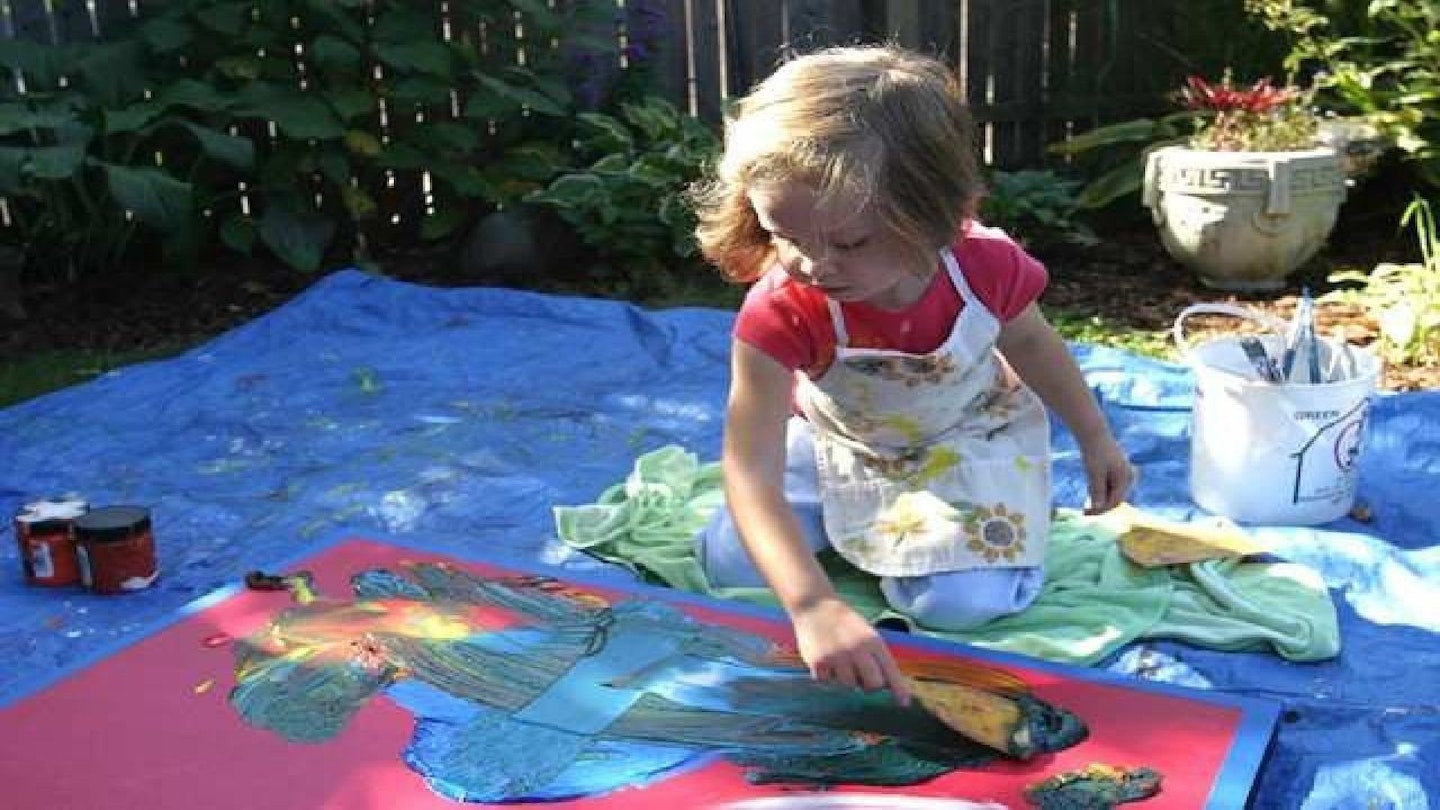“I believe the child protection authorities should take your child away from you; you are a pair of sick, twisted fucks.” So reads an email sent to Mark and Laura Olmstead, parents of four year-old Marla, the pint-sized Pollock who caused a sensation in the art world when a gallery in New York State held her first solo exhibition back in 2004.
Her story was widely reported and it was an editorial in The New York Times that caught the eye of documentary filmmaker Amir Bar-Lev. He believed that a film focusing on her work would allow him to debate the academic worthiness of modern art. Prior to making this fascinating documentary, he looked at the work of, say, Mark Rothko, and simply thought: “My kid could paint that.”
While his documentary does indeed fuel that debate, it also does much more than that. Bar-Lev accidentally stumbles upon an even more engaging editorial angle when American television show 60 Minutes casts doubt on the authenticity of the young artist’s paintings and suggests that her father helped in their creation. After all, when the cameras are pointing at the young artist, she either won’t paint, or simply smears the colours into a muddy gloop, as would most four year-olds.
This sceptical reporting caused uproar, with numerous collectors demanding an explanation. In truth, it’s a difficult case to answer; as Bar-Lev notes, why would the family invite both his film crew and
60 Minutes into their home if they had something to hide? In a bid to answer their critics, the family did capture their daughter painting on camera, although few critics, or indeed casual observers, would argue that the filmed painting matched the ethereal beauty of her earlier works. Maybe her style changed - or maybe she’s simply not as accomplished as the art world once thought.
Once the filmmaker articulates his doubt to the family, there is intense friction - the Olmsteads feel betrayed - which only serves to boost the quality and tension in the movie. In his defence, Bar-Lev maintains a keen objectivity, and viewers will no doubt sense that he feels for the family as they suffer a barrage of hate-mail. Whether this deluge is deserved, audiences themselves will have to decide.
